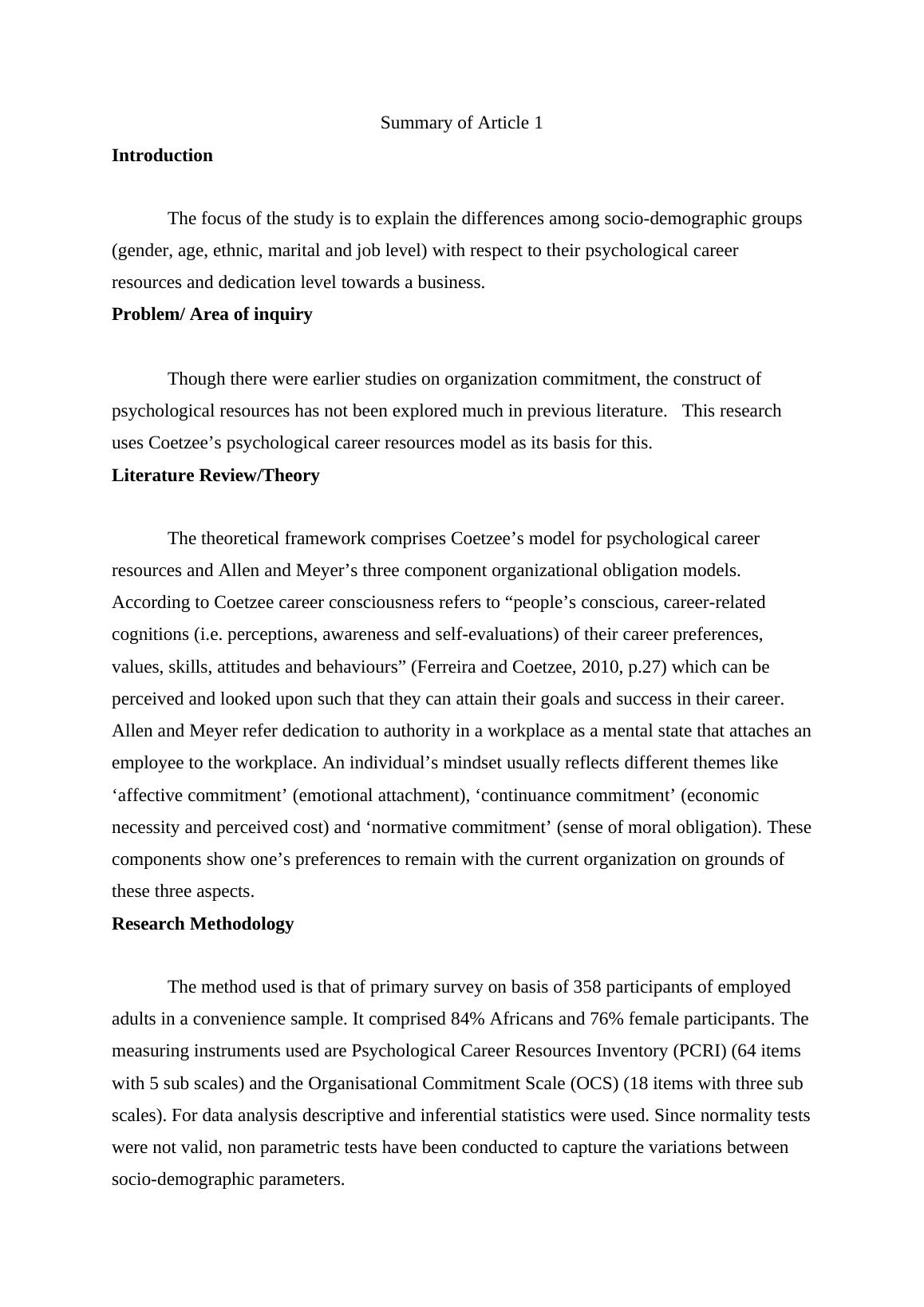Psychological Career Resources and Organisational Commitment: Exploring Sociodemographic Differences
3 Pages557 Words86 Views
Added on 2023-01-11
About This Document
This article explores the differences among socio-demographic groups in terms of their psychological career resources and dedication level towards a business. It discusses the theoretical framework, research methodology, and findings of the study.
Psychological Career Resources and Organisational Commitment: Exploring Sociodemographic Differences
Added on 2023-01-11
ShareRelated Documents
End of preview
Want to access all the pages? Upload your documents or become a member.

